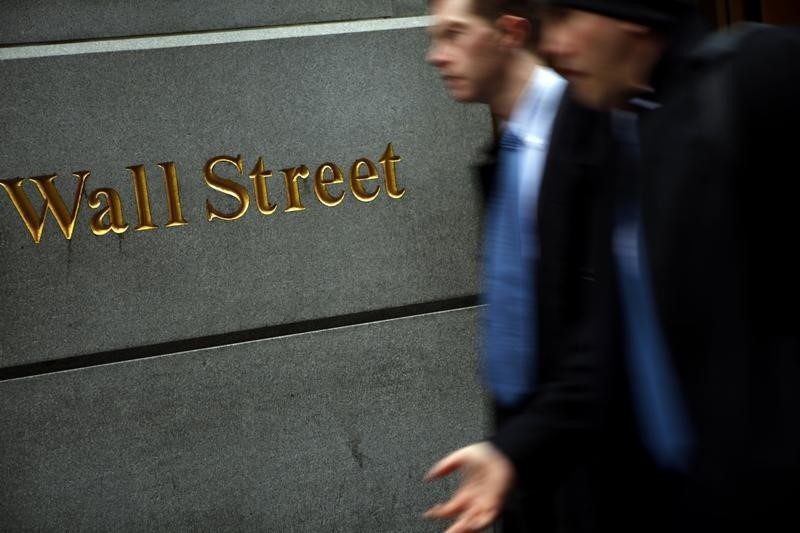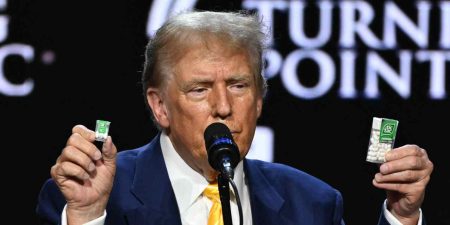Investing.com — Sam Altman is set to be brought back as chief executive of OpenAI under the supervision of a new board following days of tension and turmoil at the high-profile AI start-up. Elsewhere, Nvidia (NASDAQ:) warns of a decline in sales in China during its current quarter in the wake of more stringent U.S. export controls, while Binance CEO Changpeng Zhao resigns as part of $4.3 billion settlement that brings an end to a multi-year probe by U.S. authorities into the cryptocurrency exchange giant.
1. Altman to return as OpenAI boss
Sam Altman is set to return to the helm of OpenAI just days after he was sacked as chief executive of the big-name generative artificial intelligence group.
The stunning reversal is the latest twist in a dramatic boardroom battle that has sparked concerns over the future of the maker of megapopular AI chatbot ChatGPT.
In a post on social media platform X, OpenAI announced that Altman, considered by many to be one of the leading figures in the global debate over the usage of AI, would be brought back to the firm. Co-founder Greg Brockman, who quit after Altman’s ouster on Friday, will also return.
According to an “agreement in principle,” OpenAI said Altman will be under the supervision of a new board of directors that will include former Salesforce (NYSE:) co-CEO Bret Taylor and ex-Treasury Secretary Larry Summers. Adam D’Angelo, an existing board member and head of question-and-answer service Quora, will also remain.
Prior to Altman’s reinstatement, the four-person board of directors had faced heavy backlash from both staffers and investors. Reports say that a majority of employees signed a letter threatening to follow Altman to key OpenAI backer Microsoft (NASDAQ:) if he was not brought back, while some investors weighed legal measures against the board.
2. Futures muted
U.S. stock futures hovered around the flatline on Wednesday, as investors digested minutes from the Federal Reserve’s November meeting and much-anticipated earnings from AI chipmaker Nvidia.
By 05:06 ET (10:06 GMT), the contract had gained 20 points or 0.1%, while and were mostly unchanged.
Impacting sentiment heading into the last full trading day of the Thanksgiving-shortened week were minutes from the Fed’s latest gathering, which suggested that the central bank is not likely to slash interest rates anytime soon. In particular, the minutes showed that officials want to see more evidence “in the coming months” that inflation — the central focus of the Fed’s long-standing monetary tightening campaign — is continuing to cool back down to their 2% target.
Meanwhile, shares in Nvidia were choppy in premarket trading after the world’s largest semiconductor manufacturer warned of a downturn in sales at its China business in the wake of expanded U.S. controls on exports of AI chips to the country, but said the impact would be offset by solid growth in other regions (more below).
Both the 30-stock and benchmark fell by 0.2% in the prior session, breaking a five-day streak of gains, and the dipped by 0.6%.
3. Nvidia flags China sales dip
Nvidia flagged that sales in its key Chinese market would “decline significantly” in its current quarter due to last month’s move by the Biden administration to extend the scope of its sanctions on exports of cutting-edge AI chips to the country.
Approximately 20%-25% of Nvidia’s key data center business is derived from its sales in China, the company said, meaning that it could be vulnerable to Washington’s ongoing drive to limit Beijing’s access to AI materials.
However, Chief Financial Officer Colette Kress said in a statement that this drop “will be more than offset by strong growth in other regions.”
In the third quarter, the data center division raked in revenue of $14.5 billion, a year-on-year rise of 279%. Kress noted the result was not “meaningful[ly]” impacted by the U.S. restrictions, which were announced near the end of the three-month reporting period that finished on Oct. 29.
Total revenue reached a quarterly high of $18.1B, far outpacing Bloomberg consensus estimates of $16.1B, as Nvidia continued to reap the benefits from a boom in demand for AI-powered products.
4. Binance CEO resigns
Changpeng Zhao has stepped down as the chief executive of Binance and has pleaded guilty to breaching U.S. anti-money laundering laws, prosecutors said on Tuesday.
Binance also pleaded guilty to criminal charges linked to money laundering and sanctions laws, according to authorities. They added that the company failed to report over 100,000 suspicious transactions related to terrorist groups, child sexual abuse materials, and ransomware attacks. Binance has agreed to pay more than $4.3B in penalties.
Zhao now faces a fine of $50 million, although his sizeable personal fortune remains largely intact and he will hold on to his stake in Binance.
The announcement is the culmination of a years-long investigation into Binance, the world’s biggest cryptocurrency exchange which was founded by Zhao in 2017. It also comes weeks after Sam Bankman-Fried — the founder of now-bankrupt Binance rival FTX — was convicted of stealing billions in dollars from customers.
5. Oil prices slip
Oil prices dropped on Wednesday after industry data pointed to a substantial build in U.S. inventories, but with the weekend’s OPEC+ meeting in focus.
By 05:05 ET, the futures traded 0.8% lower at $77.13 a barrel, while the contract fell 0.8% to $81.80 per barrel.
The American Petroleum Institute estimated that U.S. stockpiles grew over 9 million barrels in the week to Nov. 17, substantially more than expectations for a build of 1.5 million barrels. If confirmed by official data later in the session, this would be the fourth straight week of builds for U.S. inventories, indicating that oil supplies remained robust.
The Organization of the Petroleum Exporting Countries and its allies, a group known as OPEC+, is set to meet on Nov. 26, with reports suggesting that Saudi Arabia and Russia –- the two major producers in the group -– were considering deeper supply cuts to support oil prices.
Read the full article here














